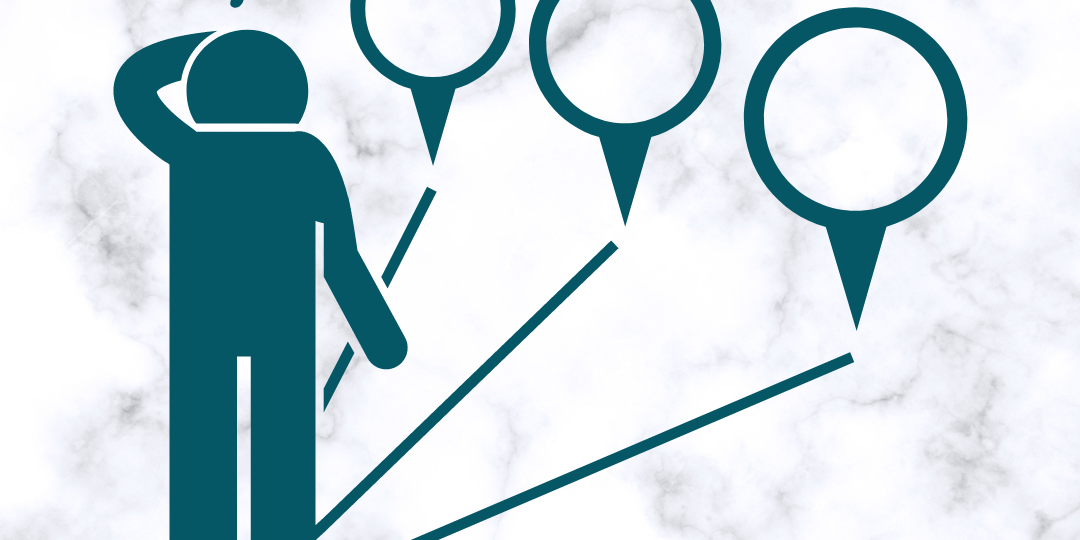
An article from Dr Annabel McGuire, Director Advisory Services
Once upon a time in a land far, far away I did my PhD on Expert Decision Making in Military Tactical Decision Making. I recently had cause to go back and look at some of what I wrote and it is still an inherently interesting topic for me.
Now, don’t panic, I am not going to write a treatise on good military tactics – that is not my area of expertise. But, at that time I learnt a lot about decision making and deciding how to decide is something I still use every day in my Advisory work
– I trust my intuition, I go with my gut
– You have to have a systematic process that allows you to validate a decision and ensures it stands up to scrutiny
You have probably heard both these statements before – but which one is right?
Both
Trusting your intuition works if you are an expert in the field and have years of experience and learning on which to base that intuition on and, in some circumstances, if a decision needs to be made really quickly.
For instance, a fire fighter battling a blaze, first responders at the scene of an accident or even a driver who brakes reflexively because they have seen something in their peripheral vision – the kid and a ball scenario.
But intuition is not a valid approach for many other decisions – assessing a tender, articulating a strategy, or performing your first surgery. In these circumstances, rational, linear decision processes that are structured to avoid bias and other human flaws are much more likely to serve you better.
So, before I make a decision, I decide how to decide. These are the questions I ask myself before I pick a decision making process:
- How urgent is the decision (and what are the consequences of delay)?
- How important is the outcome of the decision?
- Do I have expertise in this type of decision?
- Do I have enough information and, if I don’t, is that information able to be sourced?
- Do I have a validated process to assess my decision options?
In the research I conducted on decision making, I asked people about their personal approach to the decision task I had given them – rational and linear or intuitive? Participants were classified as either experts or novices using criteria that were developed a priori (10+ years’ experience, specific training, training, and experience and training that focused on the particular area I was looking at.). An expert needed to fit all three criteria and a novice none, one or two.
It turned out that for experts, preference for decision making style did not affect decision quality. Experts made higher quality decisions than novices. Preference for decision making style did not affect novices decisions either, which was poorer than that of experts – even if they had some of the hall marks of expertise.
The Australian Army has a suite of decision processes available to Commanders at different levels. But “Commander’s intuition” is held in very high regard. So, the findings were greeted with some skepticism. There is something almost sexy about “brilliant intuition”. And yet, in my research experts who reported using a rational linear process to reach their decision were the equal of those who used intuition.
Decades of research by others suggests that this type of intuition is firmly based on the application of learnt skills, but the expert is so familiar and practiced at using the process that they are able to reach conclusions without necessarily consciously applying a process.
One of my favourite academic articles was written by Daniel Kahneman, a Nobel prize winner who spent much of his career running experiments in which intuitive judgement was found to be flawed (heuristics and biases) and Gary Klein who spent much of his career thinking about ways to promote reliance on expert intuition in executive decision making. In their article “Conditions for Intuitive Expertise: A failure to disagree” they wrote
True experts, know when they don’t know. Non-experts (whether or not they think they are) certainly do not know when they don’t know… irrelevant of how confident they are.
This quote speaks to the importance of acknowledging what you do and don’t know, and making informed decisions accordingly. In my line of work, I’m often tasked with facilitating high-level strategic decisions for my clients. There are some that I make using tried and true processes, and others that I rely on a more intuitive approach. Very often I am not the subject matter expert in the room, but I am there to help guide a great organisation to the best decision. And at the end of the day, that’s what matters most.
If you want to discuss this topic further with Annabel, please reach out!
Did you enjoy this article? Subscribe to our newsletter, The Gripfast ‘Good To Know’ HERE!

